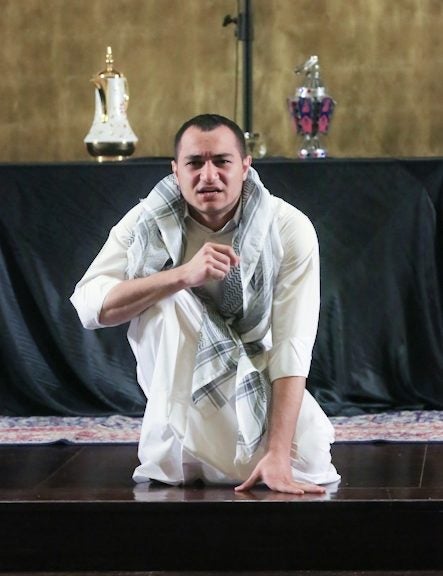Passions Run High in Follow up Greek Classic Theatrical Production

On Wednesday, November 12, 2014 the Georgetown Auditorium became the stage for the powerful performance of the recently launched Theater Group’s production of the Greek classic, Medea, which was the follow up to their freshman production of Sophocles’ Antigone.
Written in 431 BC by Euripides, one of the great tragedians of classical Athens, the story-line of Medea takes place in the Greek city of Corinth, and centers around a state of conflict between Medea and her husband Jason, who has chosen to marry the daughter of Creon, king of Corinth, in order to advance his social position. The dramatic unfolding of the crisis revolves around these main characters, and culminates in a vengeful act designed to punish the disloyal husband for his betrayal to the marriage and to his children. Medea then flees with the help of Aegeus, King of Athens, who has offered Medea sanctuary in his home city. In the final scene, Jason is left alone, lamenting the great tragedy and many losses that have befallen him.
Euripides’ Medea addresses many of the superstitions of his time, and deals with personal issues and challenges concepts of social morality. His contributions to theater have influenced drama even in modern times, particularly through his representation of mythical heroes as ordinary people struggling with extraordinary situations.
For this performance, the students adapted the play to reflect local culture, such as through wearing costumes normally seen on the streets of any GCC country, rather than ancient Greece. The play and the theater group were developed by Georgetown students, with the help of university faculty and staff who provided support throughout the production process.